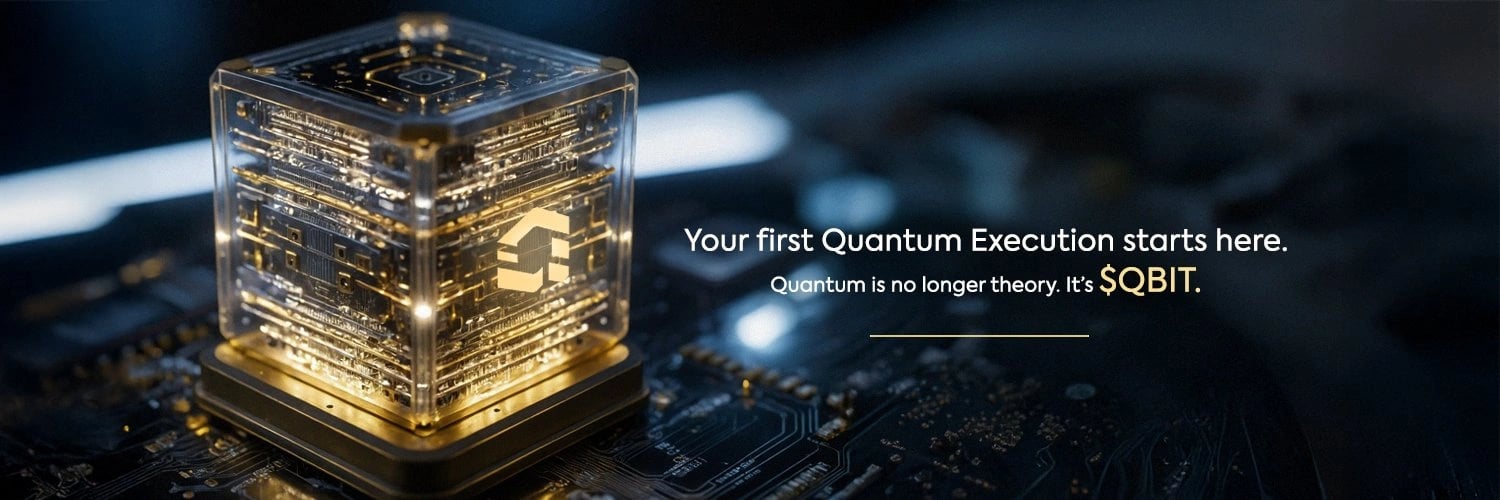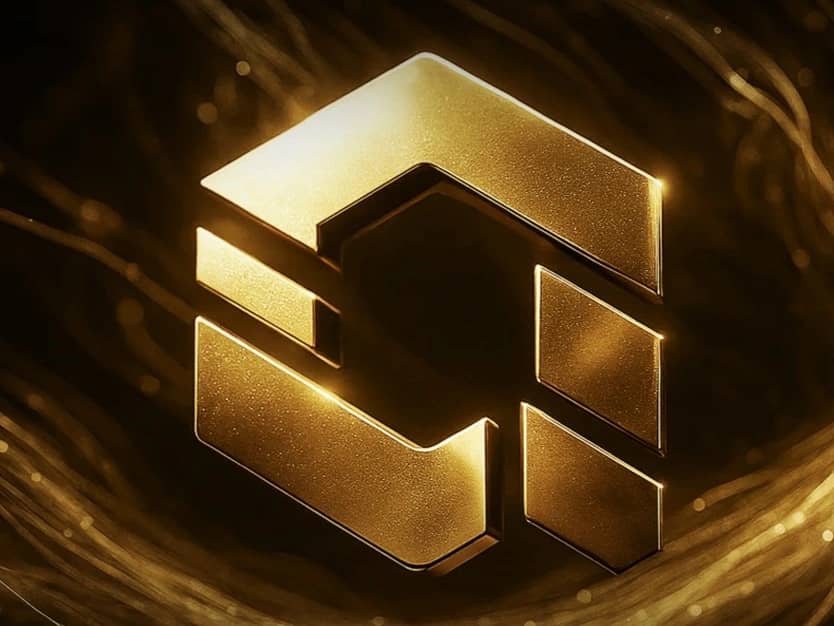위키 구독하기
Share wiki
Bookmark
Qubit
0%
Qubit
Qubit은 Web3 애플리케이션에 실시간 양자 엔트로피 및 처리 기능을 제공하도록 설계된 탈중앙화된 양자 컴퓨팅 플랫폼입니다. 양자 하드웨어와 블록체인 기술 간의 격차를 해소하여 개발자가 양자 네이티브 도구를 스마트 계약, 프로토콜 및 탈중앙화 애플리케이션(dApp)에 통합할 수 있도록 하는 것을 목표로 합니다. [1]

개요
Qubit은 기존의 클라우드 기반 양자 서비스를 넘어 양자 컴퓨팅을 위한 애플리케이션 레이어로서의 입지를 다지고 있습니다. 이 플랫폼은 얽힘 및 붕괴와 같은 양자 논리를 계산에 직접 활용할 수 있는 무허가 네트워크를 만드는 데 중점을 둡니다. 이러한 접근 방식은 엔트로피를 자원으로 활용하여 탈중앙화된 웹 내에서 디지털 보안, 무작위성 및 복잡한 문제 해결을 위한 새로운 패러다임을 제공하고자 합니다. 이 프로젝트는 양자 하드웨어를 더 넓은 개발자 커뮤니티가 접근하고 프로그래밍할 수 있도록 만들어 학술 및 기업 전용 환경에서 벗어나도록 하는 데 중점을 둡니다. [1]
검증 및 감사
- KYC 검증 – SolidProof의 KYC 프로세스를 통해 팀 신원 확인 및 배경 조사가 수행되었습니다.
- 보안 감사 – 잠재적인 취약점을 식별하고 해결하기 위해 스마트 계약 감사 및 프로토콜 검토가 수행되었습니다.
- 양자 무작위성 감사 – QBIT 애플리케이션이 진정한 양자 무작위성을 통합하여 양자 현상에서 파생된 암호화 방식으로 안전한 엔트로피를 생성하는지 확인했습니다. [1]
사용 사례

게임 및 메타버스
양자 생성 무작위성을 활용하여 예측 불가능하고 공정한 게임 플레이, 절차적 가상 세계 생성, 고유한 NFT 특성 및 동적 비플레이어 캐릭터(NPC) 동작을 가능하게 합니다.
DeFi 및 DAO
거버넌스 공정성 및 프로토콜 보안을 강화하기 위해 포스트 양자 보안 지갑, 무작위 검증자 선택, 검증 가능한 무작위 오라클 및 양자 저항 암호화 서명을 지원합니다.
보안
현재 및 미래의 양자 위협으로부터 보호를 강화하기 위해 양자 보안 키 생성, 변조 방지 엔트로피 소스, 포스트 양자 디지털 서명 및 검증 가능한 무작위성 증명을 제공합니다.
제품
- QBIT Dock – 지갑 기반 인증을 통해 양자 처리 장치(QPU)에 대한 액세스를 제공합니다. 사용자는 백엔드 하드웨어를 선택하고, 실행 매개변수를 구성하고, 양자 작업을 제출하고, 대기열을 모니터링하고, 온체인 실행 영수증을 받을 수 있습니다.
- QBIT Craft – 드래그 앤 드롭 게이트 구축, QASM 3 호환 컴파일, 회로 템플릿 및 QBIT Dock으로의 내보내기, 디자인 저장 및 로드를 지원하는 시각적 회로 설계 환경입니다.
- QBIT Sim – QPU 리소스를 사용하지 않고 단계별 실행 시각화, 확률 분포 그래프, 얽힘 미리보기 및 디버깅 도구를 제공하는 로컬 양자 회로 시뮬레이터입니다.
- QSKG 서비스 – 지갑 보안, DAO ID, 스마트 계약 인증 및 엔트로피 검증에 적용하여 고전 및 양자 공격에 저항하도록 설계된 암호화 방식으로 안전한 양자 엔트로피 기반 키를 생성합니다.
- QRNG API – 게임, 복권, 암호화 작업, 오라클 무작위성 피드 및 공정한 프로토콜 실행에 사용하기 위해 양자 측정에서 파생된 검증 가능한 무작위성을 제공합니다. [4]
실제 애플리케이션
- 양자 강화 Web3 도구 – 스마트 계약에 통합하기 위한 진정한 양자 엔트로피를 제공하는 API를 제공하여 입증 가능한 공정한 NFT 민팅, 편향되지 않은 게임 메커니즘 및 양자 보안 키 생성을 가능하게 합니다.
- 서비스형 양자 보안 – 양자 저항 지갑 통합, 양자 키 분배(QKD) 실험 플랫폼 및 DAO 거버넌스, 탈중앙화 인프라 네트워크 및 보안 메시징을 위한 암호화 툴킷을 포함한 포스트 양자 보안 솔루션을 제공합니다.
- 게임 및 메타버스 애플리케이션 – 절차적 지형 생성, 공정한 플레이 투 적립 메커니즘 및 예측 불가능한 NPC 동작에 양자 무작위성을 활용하며, 주요 게임 엔진 및 메타버스 플랫폼과의 통합을 위한 SDK 및 API를 통해 지원됩니다. [1]
로드맵
QUBIT은 포괄적인 양자 컴퓨팅 플랫폼을 구축하기 위해 단계별 개발을 진행하고 있습니다.
- 기반 단계(현재): 프로토콜 설계, 브랜드 개발, 핵심 팀 구성 및 양자 하드웨어 제공업체와의 파트너십 구축에 중점을 둡니다.
- 1단계 – 핵심 유틸리티: 기본 양자 작업 실행을 가능하게 하는 QBIT Dock 및 QBIT Craft 시각적 빌더 출시.
- 2단계 – 양자 통합: 양자 보안 키 생성(QSKG), 암호화된 메시징 및 고급 보안 기능 도입.
- 3단계 – 개발자 생태계: SDK 및 API 배포, 타사 통합 및 커뮤니티 개발자 프로그램.
- 4단계 – AI 통합: 양자 AI 툴킷, 머신 러닝 통합 및 하이브리드 양자-고전 컴퓨팅 기능 개발. [4] [1]
토큰노믹스

QUBIT 토큰($QBIT)
$QBIT 토큰의 유통량, 총 공급량 및 최대 공급량은 10억 개의 토큰입니다. 시가 총액과 완전 희석 가치는 모두 $8,969,049이며, 24시간 거래량은 $123,256입니다. 이 토큰은 양자 컴퓨팅 서비스에 액세스하고, 실행 수수료를 지불하고, 거버넌스에 참여하는 데 사용되며, 수익 공유 메커니즘과 통합됩니다. QUBIT 플랫폼의 모든 양자 컴퓨팅 임대료는 이더리움(ETH)으로 가격이 책정되어 투명한 비용 구조와 토큰 변환 또는 추가 수수료 없이 이더리움 생태계와의 직접적인 통합이 가능합니다. [4] [1]
잘못된 내용이 있나요?
